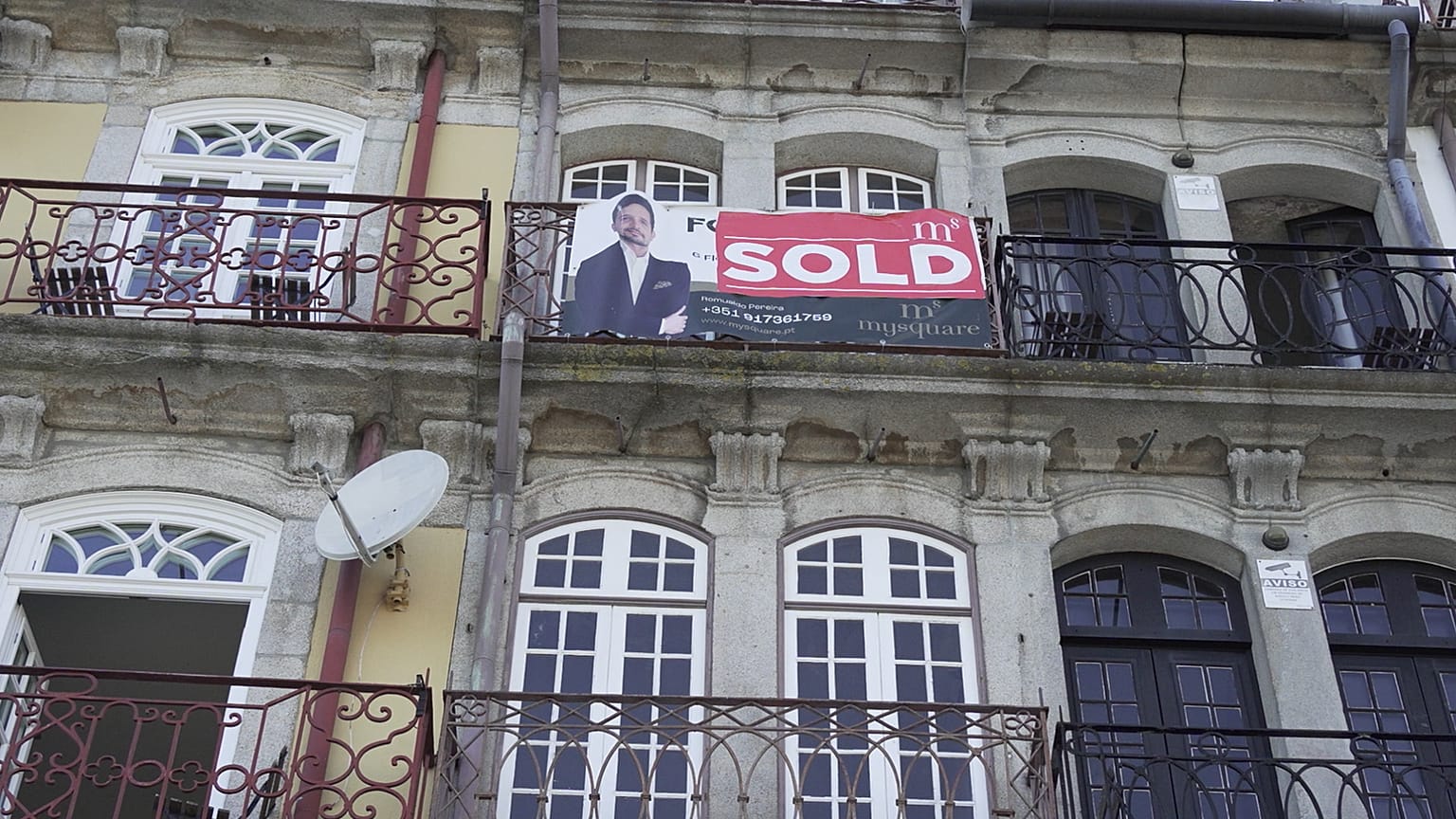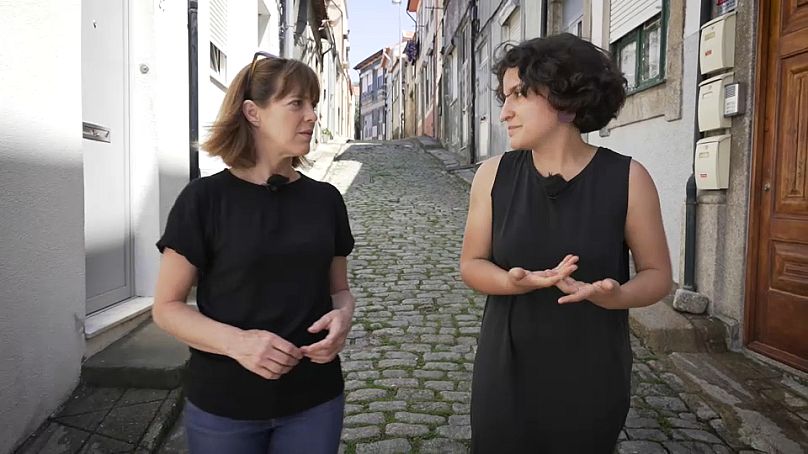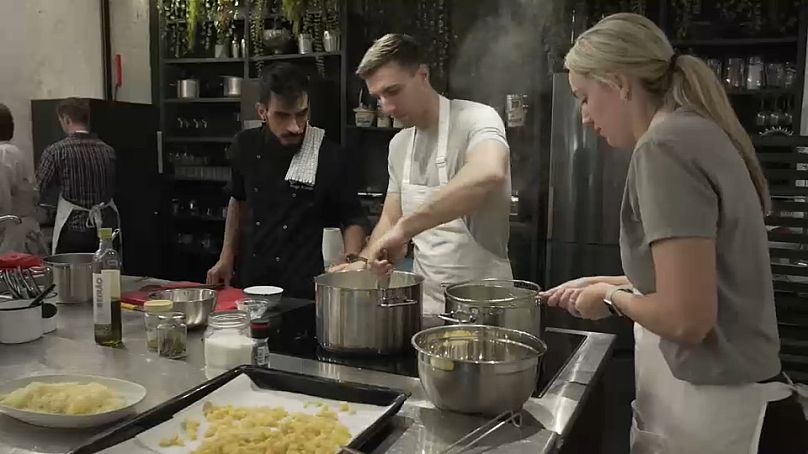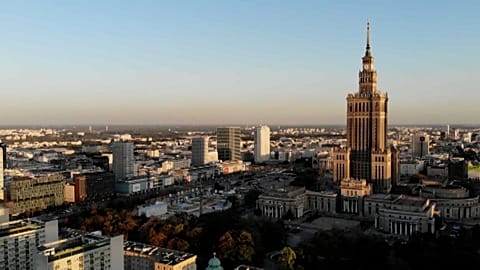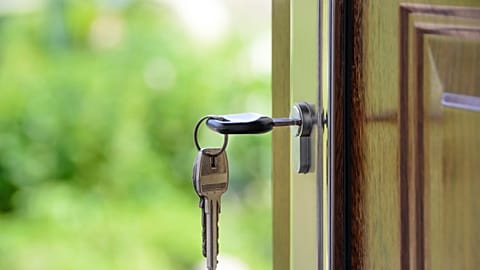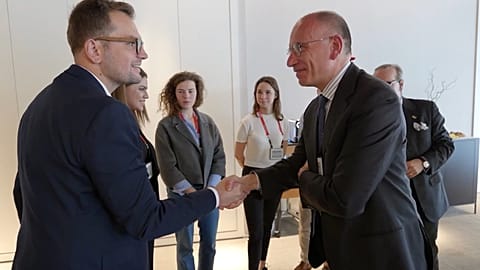Residents of Porto say they're being squeezed out of the housing market by short-term rentals, but landlords say they're boosting the local economy
Millions of people visit Porto each year and with its river, iconic bridge, and culinary reputation, it's easy to see why. Visitors are a significant part of the local economy but there’s a fine line between sustainable tourism and overtourism, where local people are priced out.
Huge housing problems
Tens of thousands of people protested in Portugal in April 2023, furious at the housing crisis, triggered by foreign investment in property, low wages, a lack of affordable new homes and exacerbated by holiday rentals chipping away at the residential housing stock.
Helena Souto from the housing association Habitação Hoje! says the situation is the cause of huge problems.
"We are hearing every day of cases of people living in over occupation, like 12 people living in a small apartment, 15 people," she says. "We are talking about huge problems of cold, of humidity, of fungus."
She says empty public housing is a major problem, as is the gentrification of neighbourhoods as short-term rentals start to outnumber homes.
"The city is being made for the people who can pay higher prices, so it can be tourists, digital nomads or people who come to make business," she says.
A rise in digital nomads
Portugal has seen a rise in digital nomads and offers a digital nomad visa. Housing activists say they will make the crisis worse.
Not so, say companies who rent accommodation, for short-term rentals and for longer stays, and provide coworking spaces.
"They become part of the local community," argues Rui Santos, Head of Communication at FeelPorto. "They go to the same shops, they go to restaurants, supermarkets. So they contribute to the local economy."
And he denies they're eating into the local housing stock.
"It's the opposite of that," he says. "Because this type of solution we have is a solution that enables these digital nomads not to create pressure on residential accommodation."
Local authorities take action
Porto's brought in rules allowing it to freeze short-term rental licences, a first for a Portuguese city.
Ricardo Valente is City Councillor for Finance, Economy and Employment, in Porto.
"We have two parts of the city," he explains. "A sustainable area where you can get new registrations and what we call constrained areas so basically areas where if you have a lot of pressure, you are not entitled to get a new licence."
New Europe-wide rules
Figuring out how to make sure tourism is sustainable is not just a Portuguese problem, it's Europe-wide.
The European Commission has proposed new rules for the collection and sharing of short-term rental data to find out more about who’s staying where and for how long, across the single market.
All hosts and properties will have to follow the same online registration procedures and will have a unique identification number - harmonising data and helping the fight against illegal short-term rentals.
"This new European regulation for us is very relevant because it gives you one of the most relevant things - information," says Valente.
"Much of the problems we have in managing short-term rentals is the way these platforms hide information. And so for us, it is very relevant to have this playing level, saying that what is legal offline should be legal online and what is illegal offline should be illegal online."
Seeking the right mix
But tourism plays a big part in Porto’s economy. That’s not just money spent on accommodation, but money spent in local businesses like the Workshops Pop-Up, where tourists learn to cook a traditional Portuguese meal.
"Cooking and eating is a very important part of our culture in Portugal," says owner-manager Nuno Pedrosa.
"We started our business trying to promote places here in downtown because... the downtown area of Porto was kind of abandoned, in the last 10 to 15 years a lot of things have started moving and that has given Porto downtown much life."
Brussels is hoping its new short-term rental rules are part of the recipe for success for sustainable tourism in Porto and the rest of Europe.














